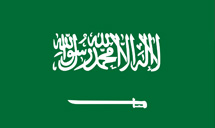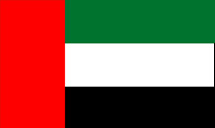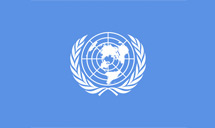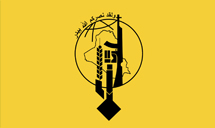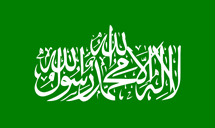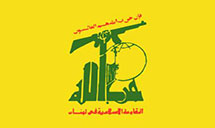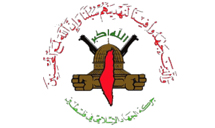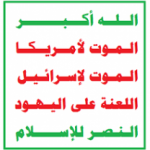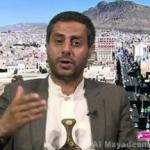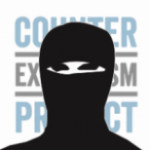Executive Summary:
The Houthis—officially known as Ansar Allah (Partisans of God)—are an Iranian-backed, Shiite Muslim military and political movement in Yemen. Its members, who subscribe to the minority Zaidi sect of Shiite Islam, advocate regional autonomy for Zaidis in northern Yemen. The group has waged a series of bloody insurgencies against the Yemeni government since 2004, overthrowing them and seizing power in Sanaa in 2015. In 2016, the group announced the formation of a government. As of 2023, nearly six million Yemenis have been displaced by the conflict and more than 23.4 million need humanitarian assistance.
The Houthi movement began as an effort to maintain tribal autonomy in northern Yemen and protest Western influence in the Middle East. Today, the Houthis seek a greater role in the Yemeni government and continue to advocate Zaidi minority interests. The movement is known for its virulently anti-American and anti-Semitic rhetoric, including the group’s ubiquitous slogan: “God is great! Death to America! Death to Israel! Curse upon the Jews! Victory to Islam!” Several of the group’s leaders have been designated as terrorists by the United States.
Iran’s Islamic Revolutionary Guard Corps (IRGC) is closely associated with the group, providing training and military equipment to the Houthis. The Iranian ship Jihan I was seized allegedly en route to Yemen in 2013 with arms meant for the Houthis.
The Houthis’ roots trace back to the 1990s, when Houthis founder Hussein Badr al-Din al-Houthi created the al-Shabab al-Mumanin (Believing Youth) movement in an effort to combine religious revivalism with anti-imperialism. The movement sought to educate local youth about Zaidism’s long history in Saada Governorate, northern Yemen. To that end, the al-Houthi family launched a network of associations, sports clubs, and summer camps. The al-Houthis also sought to protect Zaidism from perceived encroachment of Salafism and Wahhabism from Saudi Arabia into northern Yemen, where Zaidism has been dominant for centuries.
God is great! Death to America! Death to Israel! Curse upon the Jews! Victory to Islam!Houthis slogan
The Houthi movement grew increasingly politically engaged in 2003, in reaction and opposition to Yemeni President Ali Abdullah Saleh’s support for the U.S-led war in Iraq. Domestically, Hussein Badr al-Din al-Houthi continued to seek autonomy for Saada Governorate from Yemen’s Sunni-dominated central government.
After Saleh dispatched troops in a failed attempt to arrest al-Houthi in 2004, the Houthis launched an insurgency against the government. Al-Houthi was killed during clashes with the government in 2004, but the movement has continued in his name, waging a series of intermittent wars against the government, with Saudi forces intervening to support Sanaa in the years since.
During these wars, Saleh repeatedly sought to appease the Houthis by issuing amnesties to their prisoners and even pardoning Hussein Badr al-Din al-Houthi in 2005, but al-Houthi rejected the pardon and the periodic fighting continued. In 2007, Qatar brokered a brief cease-fire called the Doha Agreement, but the deal failed to satisfy the parties and fighting resumed that year. In 2009, with the Saleh government launched the massive Operation Scorched Earth, which sought to crush the insurgency for good, and was backed by financial, political, and military support from the Saudis. However, the campaign failed, and intermittent fighting continued.
During the Arab Spring in 2011, mass protests began against the Yemeni government, and Saleh stepped down in 2012 pursuant to an internationally negotiated transition agreement. The Houthis participated in a National Dialogue Conference but continued fighting against government forces.
The Houthis made significant territorial gains in 2014-2015. In September 2014, the group captured Yemen’s capital, Sanaa, resulting in the resignation of President Abd Rabbuh Mansour Hadi in January 2015. The following month, the Houthis officially announced the dissolution of Hadi’s parliament and the institution of their interim government, known as the Supreme Revolutionary Committee (SRC).
The United Nations began facilitating peace talks between the Houthis and the Yemeni government in October 2015, but the talks ended without an agreement in early August 2016. The government of Saudi Arabia has also made multiple attempts to negotiate with the Houthis, launching the first talks in March 2016. As of 2023, multiple iterations of peace talks have so far only resulted in stalemates.
In August 2016, the SRC handed its authority to the Supreme Political Council (SPC), a government body formed by the July 2016 merger between the Houthis and former Yemeni president Ali Abdullah Saleh. The alliance ended in December 2017 after Saleh offered to reconcile with Saudi Arabia, leading to the assassination of Saleh at the hands of Houthi forces shortly after.
Following a week of U.N.-sponsored peace talks in Sweden, all parties tentatively agreed to an immediate cease-fire in the Red Sea port of Hodeidah on December 13, 2018. However, few of the conditions agreed upon were implemented by either side. Fighting continued until February 17, 2019, when the Houthis and Yemeni government finally withdrew their forces from the city of Hodeidah. Since 2017, the Houthis have also repeatedly attacked Saudi Arabia with missiles and drones and ramped up strikes in the spring and summer of 2019.
On August 27, 2019, the U.S. government was reportedly preparing to initiate negotiations with Iranian-backed Houthi rebels in an effort to bring the civil war in Yemen to an end, but the attempt did not result in significant progress. Saudi Arabia presented another ceasefire plan to the Houthis in March 2021, which the militants rejected unless Saudi Arabia fully lifted its blockade of northern Yemen and ceased targeting Houthi positions. The Saudi-led coalition then promised to stop carrying out attacks against the movement to facilitate peace talks in June 2021.
On June 21, 2021, the Saudi-led coalition and the Houthis attempted to negotiate a peace deal with the help of U.N. envoy Martin Griffiths and U.S. envoy Tim Lenderking. However, the Houthis’ chief negotiator, Mohammed Abdulsalam, noted that the Houthis wanted to ensure reopening access to Sanaa airport and Hodeidah port before discussing a comprehensive ceasefire. By providing the Iranian-backed Houthis with open access to Sanaa and Hodeidah, Riyadh would intentionally be putting Saudi Arabia’s domestic security at risk by allowing Iran access to the region.
The Houthis began an offensive on Marib, capturing Rahabah district, on September 8, 2021. Local tribes fought to repel the Houthis, but the Houthis continued to advance throughout Marib. Given the ongoing offensive, more than ten thousand civilians have been displaced, with aid workers on the ground accusing the Houthis of committing genocide in Marib province by denying civilians access to medical and humanitarian aid, leading to the displacement and starvation of thousands. On October 12, 2021, the internationally recognized Yemeni government declared southern Marib a military zone following Houthi gains in the area. By November 2021, the Saudi-led coalition killed more than 2,000 Houthis around Marib city since early October.
Despite continued fighting, on March 8, 2022, U.N. Special Envoy for Yemen Hans Grundberg launched consultations in Aman, Jordan, between the Houthis and Yemeni government on the prospects of launching a peace process. However, the Houthis renewed attacks on government troops on the Al-Balaq mountain range outside Marib city. The Houthis reportedly failed to achieve any territorial gains after government forces repelled their attacks. On March 28, the United Nations began brokering prisoner-swap negotiations between the Houthis and Saudi Arabia.
A month after launching negotiations, on April 1, 2022, the Houthis and the Saudi-led military agreed to a U.N.-brokered two-month truce, the first coordinated cessation of hostilities since 2016. The parties agreed to halt all offensive military air, ground, and maritime operations inside Yemen and across its borders in Saudi Arabia and the UAE. The ceasefire proved successful and was extended for an additional two months on June 2. However, on July 17, 2022, the Iran-backed Houthis stated they will not renew the U.N.-brokered truce with the Saudi-led military in Yemen. According to the movement’s SPC, international calls to extend the truce “affect the sovereignty, security and stability of Yemen” and were the reason behind the group’s decision to not renew the ceasefire.
The six-month-long ceasefire between the Houthis and the Yemeni government expired without prospects for renewal on October 2, 2022. Relations were further strained when Yemen’s National Defense Council designated the Houthis as a terrorist group on October 22, given the movement’s continued violent activity against civilians. Later in February 2023, the Yemeni government warned of a “decisive” battle against the Houthis if peace efforts fail.
In early April 2023, in the midst of Saudi Arabia and Iran agreeing to restore diplomatic relations, Saudi Arabia and the Houthis initiated peace negotiations in Sanaa. The consultations, which are separate from U.N. peace efforts, were mediated by Oman. Through the talks, Saudi Arabia sought to “stabilize the truce and cease-fire” that will lead to long-term political stability for Yemen. Additionally, the negotiations seemed to enforce the complete withdrawal of foreign forces from the country. However, Yemen’s internationally recognized government was excluded from the talks. Though, on July 23, 2023, the Houthis announced that peace negotiations with Saudi Arabia have paused due to disagreements concerning the source of funds to pay the salaries of civil servants living in Houthi-controlled areas.
Doctrine:
Unlike Sunni extremist groups in Yemen, the Houthis adhere to Zaidism, a doctrinally distinct off-shoot of mainstream “Twelver” Shiism. While Zaidism ruled Yemen for approximately 900 years beginning in the 9th century, the country has been officially secular since 1962, when a military coup ended the rule of Imam Mohammed Al-Badr.
The Houthi movement has drawn attention for its anti-American, anti-Semitic slogan, “God is great! Death to America! Death to Israel! Curse upon the Jews! Victory to Islam!” While some analysts maintain that the slogan does not reflect the group’s objectives, the Houthis have issued threats against Yemen’s Jewish community and attempted to force the U.S. ambassador from Yemen to leave. The Jews living in Saada were threatened by the Houthis in 2007 and forced to relocate to Sanaa, where they were living under government protection as of early 2015.
The Houthis have detained numerous foreign nationals, including at least five Americans. In June 2015, the Houthis released one American captive. On September 20, 2015, after the intercession of Oman’s government, the Houthis released three more hostages, including U.S. citizen Scott Darden, a logistics employee from Louisiana, and one other American. On November 10, 2015, U.S. officials reported that American contractor John Hamen, who had been detained sometime in October 2015, was dead. The announcement was followed by the release of three other Americans believed to be working for the United Nations.
Organizational Structure:
The Houthi movement’s organizational structure is opaque. The movement began as a grassroots religious organization aimed at youth, but over time it has entered politics and developed military capabilities. Following the killing of movement founder Hussein Badr al-Din al-Houthi by Yemeni forces in 2004, the Houthis were led by Hussein’s father, spiritual leader Badr al-Din al-Houthi. The movement’s current leader is Hussein’s younger brother, Abdul-Malik al-Houthi.
The organization revolves around a General Secretary, Fadhl Abu Talib, and has multiple “departments.” These departments include the political office—al-maktab al-siyasi—as well as the external relations office, health office, education office, social office, intelligence service, and the “media authority to counter the aggression.” However, the Houthis still have yet to make an organizational chart publicly available.
Since December 2, 2017 after the death of President Saleh, the Houthis have ruled northern Yemen. In Houthi-controlled territories, formal state authorities exist alongside the Houthi supervisory system. Decision-making within the Houthi regime is not in the hands of those who are actors of the state—such as governors or ministers—but rather with Houthi supervisors.
Houthi political leadership is organized around four “wings.” These wings include the military wing, which is headed by Abdullah al-Hakim; the tribal wing, which includes tribesmen; the ideological wing which is led by Abdulkarim al-Houthi; and the political wing, which is represented by Mahdi al-Mashat, the current president of the Supreme Revolutionary Committee (SPC).
Financing:
Yemeni officials have long accused Iran’s Shiite Islamist regime of providing political, financial, and logistical support to the Houthi rebels and other secessionist movements in Yemen. Despite a 2015 U.N. report confirming Tehran’s support of the rebel group since at least 2009, Iran and the Houthis have historically denied engaging in past cooperation. Nevertheless, other reports subsequently confirmed Iranian support, including a Reuters article in December of 2014 confirming financial backing by Tehran. One source stated, “We think there is cash, some of which is channeled via Hezbollah and sacks of cash arriving at the airport.” Only in 2015 did a Houthi official confirm that Iran provided “direct support” in the form of logistics, intelligence, and cash, to the Houthis rebels. According to the official, the group has received tens of millions of dollars from the Iranian regime in recent years. Experts place the amount of financial support from Iran at between $10 and $20 million per year, including at least one alleged payment of $3.7 million.
In addition to allegedly sending financial support to the Houthis, Iran also reportedly dispatches military personnel and weapons, including missiles, explosives, and small arms. American intelligence officials have claimed that the Houthis receive considerably less support from Iran than some have alleged. Nonetheless, on March 28, 2016, the U.S. Navy reportedly intercepted weapons from Iran believed to be headed for Houthi rebels. Among the weapons intercepted were 1,500 AK-47 rifles, 200 rocket-propelled grenade launchers, and 21 .50-caliber machine guns, according to Reuters.
A 2018 U.N. report accused Iran of supplying missiles and drones to the Houthis. In January 2019, the U.N.’s Panel of Experts on Yemen reported that they had “traced the supply to the Houthis of unmanned aerial vehicles and a mixing machine for rocket fuel and found that individuals and entities of Iranian origin have funded the purchase. In June 2020, U.N. Secretary-General Antonio Guterres reported to the Security Council that cruise missiles used attacks on Saudi oil facilities and an international airport in Saudi Arabia in November 2019 and February 2020 were of Iranian origin.
Though Iran has provided military and financial support to the Houthis, Iran had previously neither confirmed nor denied recognition of the Houthi government in Sanaa. In August 2019, the Houthis appointed Ibrahim al-Dulaimi, director-general of Houthi-run Al Masirah TV station, as ambassador of the Houthi government to Iran. Iran accepted the appointment and transferred Yemen’s official diplomatic residence in Tehran to Dulaimi. Iranian Supreme Leader Ali Khamenei has since met with Dulaimi and the Iranian government has recognized the legitimacy of the Houthi government. In October 2020, Iran appointed its own ambassador, Hassan Eyrlou, to the Houthi government.
On June 10, 2021, the U.S. Department of the Treasury imposed sanctions on 12 individuals and entities who comprise a smuggling network responsible for providing tens of millions of dollars of funds to the Houthis. The individuals and entities—who allegedly are in cooperation with IRGCs Quds Force senior officials—sell commodities, such as Iranian petroleum, throughout the Middle East, Africa, and Asia. The revenue from those sales have further supplemented the Houthis and their ongoing offensive on Yemeni soil. Among the most notorious of the designations is Sa’id Ahmad Muhammad al-Jamal, an Iran-based Houthi financial supporter, who directs the network of front companies and vessels. Al-Jamal also maintains connections to Hezbollah as he works with the group to send millions of dollars to support the Houthis and their operations.
In late February 2023, the Yemeni government warned two shipping companies it would revoke their licenses if the companies were found cooperating with the Houthis, including sending shipments through the Houthi-controlled Hodeidah Port. Under the terms of the December 2018 Stockholm Agreement, ports revenues are to be used to support civil service salaries. A March 2023 U.N. report accused the Houthis of diverting billions of Yemeni riyals from oil, taxes, and other levies. According to the United Nations, between April 2, 2022, and November 30, 2022, 69 tankers delivered 1,810,498 tons of oil derivatives to the Houthi-controlled Hodeidah port, generating 271.935 billion Yemeni rials (approximately $271 million) for the Houthis. The Houthis either pocketed the money themselves or used it to finance their military activities. The United Nations accused Houthi leaders’ families of amassing vast personal fortunes.
Recruitment:
According to Houthi officials in 2018, the rebels maintained a force of 60,000 fighters, while outside estimates have placed the number between 15,000 and 50,000. The Houthis’ primary area of recruitment is the northern provinces of Yemen, its heartland of ideological support. In February 2016, al-Arabiya reported that the group had expanded recruitment beyond its traditional political base by inducing “mercenaries” from African countries. In May 2020, Yemeni Information Minister Muammar Al-Iryani warned that the Houthis were increasingly recruiting civilians in areas under Houthi control.
Houthi recruitment efforts inside Yemen have benefitted from the unpopularity of the Yemeni government. Since the 2011 uprising that removed President Ali Abdullah Saleh from power, the Houthis have increasingly attracted potential recruits to anti-government public protests in support of the movement. In the summer of 2014, the group gained noticeable traction when it protested the Yemeni government’s decision to cut popular fuel subsidies. Houthi-led protests attracted tens of thousands of supporters, including not only Zaidis but also Sunnis, to Yemen’s capital, Sanaa.
Since the 1990s, Houthi recruitment has reached out to its target Zaidi audience through social connections and networking, proselytizing through religious sermons, the dissemination of written materials, audio and videotapes, and online recruitment. The Houthis began paramilitary activities in 2004 and began distributing military training videos electronically and in person where possible.
The Houthis have also revived local Zaidi rituals, including events where potential recruits can socialize with pro-jihadi Houthi militia men, with the intention of encouraging new recruits to join the veterans. A pro-Houthi youth movement called Shabab al-Sumud (Steadfast Youth) has also provided support, including by managing a tent in Maydan Taghayr (Change Square) in 2012 where members of the public could enter and watch pro-Houthi videos.
The group is also active on the Internet, including on YouTube channels where it posts pro-Houthi videos, as well as web forums to promote the Houthi movement. The Houthis operate the TV channel Al Masirah, which publishes pro-Houthi videos, including poems and songs. In 2007, group leader Abdel Malik founded the Al Minbar website, which published press statements, editorials, speeches, videos, and images to promote its message. The group has also released statements through website Ansar Allah (Supporters of Allah). Houthi officials also maintain Twitter accounts disseminating pro-Houthi material. For example, in May 2016, Houthi spokesman Mohammed Abdul Salam posted comments accusing the Yemeni government of lying and time-wasting.
Since the start of Yemen’s civil war in 2014, the Houthis have reportedly conscripted more than 30,000 child soldiers, all under the age of 15. According to a February 2021 study by the Switzerland-based SAM for Rights and Liberties, the Houthis “deliberately used the education system to incite violence and indoctrinate students with the group's ideologies,” particularly by giving children lectures on sectarian content and promoting military victories. Houthis have also exploited the extreme poverty rampant in Yemen by offering financial incentives to children whose families’ main providers had been killed. Houthi officials have admitted to conscripting at least 18,000 child soldiers as young as 10 years old, though officially the Houthis say they do not recruit children. In June 2020, news publication Asharq Al-Awsat revealed that local sources in Sanaa claimed that Houthi forces had launched a recruitment campaign to persuade children and young men to join its ranks. The campaign operates under the guise that recruits will be provided with protection from the COVID-19 pandemic. Upon enlistment, young recruits are asked to save themselves by joining the fighting front, which the Houthis claim is safer than crowded cities and areas. According to the human rights organization the Yemeni Coalition of Independent Women (CIY), child abduction is also widespread and occurs daily in Houthi-controlled areas, especially in Sanaa and the governorates of Ibb, Amran, Hajjah, Mahwit, and Dhamar. However, reports released later in June claim that the Houthis failed to implement necessary health measures to prevent the spread of the virus at indoctrination schools and institutes, leading to dozens of children being infected by COVID-19.
The Houthis have used child soldiers to plant and clear landmines, as well as act as guards. There are also reports of the Houthis sending children to the frontlines to fight. As the Houthis continued an offensive in Marib in March 2021, the Houthis reportedly took heavy losses and sought to replenish their ranks with child soldiers. Houthi forces allegedly conscripted at least 85 child soldiers that month alone. The minors received a week of training before they were sent to fight in Marib. To further the indoctrination of Yemeni youth, the Houthis have created summer camps that reportedly enroll thousands of children in Houthi-held territory. According to Houthi officials, children are educated to Houthi ideology and “immunized from false cultures” during 45-day sessions at the camps, which culminate with graduation ceremonies attended by the children’s families as well as Houthi officials. The children also receive combat training. Parents who refuse to send their children to the Houthi camps are reportedly blacklisted in their communities.
The Houthis have also conscripted civil servants from areas under their control. Al-Arabiya reported in 2017 that the Houthis were forcibly subjecting civil servants to two-week “brain washing” sessions before conscripting them. In 2021 in Ibb, the Houthis ordered all civil servants to enlist in the armed forces and spend at least 14 days on the battlefield. The Yemeni Teachers Syndicate has accused the Houthis of conscripting thousands of teachers to the frontlines. According to local media reports, the Houthis claim they are “mobilizing job sectors” by recruiting civil servants to fight for their cause.
Training:
The Houthis have historically trained their fighters in Yemen’s mountainous north. The Quds Force of Iran’s Islamic Revolutionary Guard Corps (IRGC) has trained Houthis in Yemen and Iranian military leadership is also believed to be present in Yemen to provide strategic military advice. In March 2015, Saudi foreign minister Adel al-Jubair also alleged that Hezbollah operatives were advising the Houthis. In the same month, Syrian military officials were reportedly present in Yemen assisting the Houthis as well.
In early 2015, U.S. officials reported that the IRGC’s training of Houthi rebels covered the use of advanced weapons, which the Houthis seized from Yemeni military bases. A January 2020 U.N. report claims that Iran continues to provide the Houthis with advanced weaponry and high-tech components for their ammunition systems. According to the Egyptian Center for Strategic Studies, the IRGC has its own special forces units in Yemen, with some of those units specializing in missiles and others in drones. There are also units specifically focusing on intelligence, surveillance, and reconnaissance. The IRGC allegedly has multiple operation rooms throughout Yemen, with one located in Hodeidah and another on the west coast of Yemen that secures the arrival of military forces and weapons. Following the October 28, 2020 appointment of Hassan Eyrlou—an IRGC-Quds Force officer—as ambassador of Iran to the Houthi militia, it is likely that the IRGC will move from providing not just logistical support to the Houthis, but will also direct the way in which the Houthis will manage the Yemeni crisis.
The Houthis have also sought to impose their ideology on the areas of Yemen they have captured. In mid-April 2021, Houthi militants evicted 20 academics and their families from university housing in Sanaa. The Houthis reportedly seek to install academics loyal to their cause within area universities. According to media reports, the Houthis have replaced 90 percent of school principals with pro-Houthi individuals. The Houthis have also sought to inculcate hatred of the group’s enemies by printing and distributing images of dead children allegedly killed by anti-Houthi forces. Houthi propaganda also positively highlights drone strikes on Saudi Arabia and a hatred of Israel. A member of the Yemeni Teachers Syndicate has claimed the Houthis are enforcing a “policy of cultural colonialism” and the “ideology of the Khomeinist revolution in Yemen through public education,” effectively brainwashing Yemen’s children.
Also Known As:
- Al-Houthis
- Al-Shabaab al-Mu’minin
- Ansarallah
- Ansar Allah
- Ansarullah
- Ash-Shabab al-Mu’min
- Believing Youth
|
- Believing Youth Forum
- Houthi Movement
- Huthis
- Partisans of God
- Shabaab al-Mumanin
- Supporters of God
|











